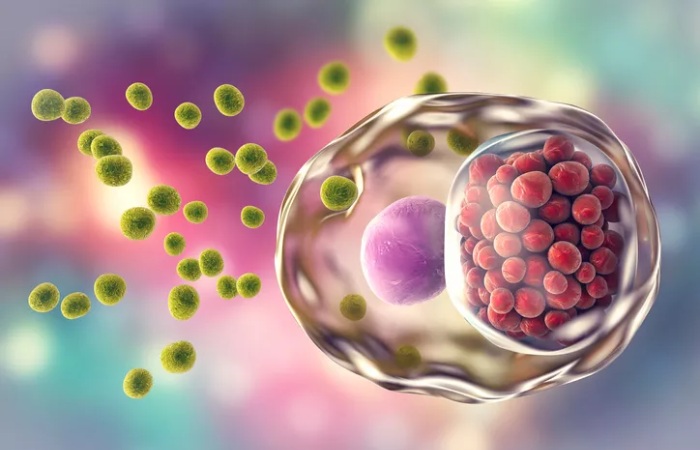Urinating after sex can help flush bacteria out of your urethra, which can reduce your risk of getting a UTI.
Is this necessary?
This isn’t necessary, but it is helpful.
Urinating after sex can help stop urinary tract infections (UTIs).
UTIs occur when microorganisms enter your urinary tract, usually through your urethra, and travel to your bladder.
If you consume a vagina, your urethra (the opening through which urine is released) is close to your vaginal opening.
If you have a penis, your urethra secretes both urine and semen, though not at the same time.
Urinating after sex can help even out bacteria that were introduced during sex from your urethra. While this isn’t a foolproof way to prevent sex-related UTIs, it’s a relatively simple thing to try.
Does this rule apply to everyone?
Urinating after sex isn’t a bad idea, but some people are more likely to benefit from a reduced risk of UTIs.
If you have a vagina and are prone to UTIs, you may benefit from urinating after sex. The path from the urethra to the bladder is short, so bacteria don’t have to travel far to reason a UTI.
If you have a vagina but be situated prone to UTIs, urinating after sex may not be as big a deal, but it can’t hurt.
Urinating after sex is the least beneficial for people with a penis. This is because the urethra is much longer. Bacteria have to travel a much greater distance to cause a UTI.
What if you don’t have penetrative sex?

Then you’re safe. You or your partner can touch any other part of the vulva without worrying about increasing your risk of a UTI.
There is one exception, though: If your partner performs oral sex or cunnilingus, which involves oral contact with the clitoris (which is very near to the urethral opening), bacteria can be transferred from the mouth and tongue to the urethra.
How soon should you pee?
Ideally, you must pee within 30 minutes of sex to reap the benefits of UTI prevention. The sooner, the better.
Can it help prevent pregnancy?
Urinating won’t prevent pregnancy, even if you do it seconds after ejaculating.
During vaginal contact, ejaculate is released into the vagina. Urine is expelled through the urethra. These are two completely separate holes. In other words, leaking urine through the urethra won’t flush anything out of the vagina.
Once sperm enters the vagina, there’s no turning back. Sperm are already moving upward to try to fertilize the egg.
What to do if you’re trying to get pregnant?
When you’re annoyed to get pregnant, some medical experts may recommend waiting a few minutes before standing up after sex. This will help ease the path to the uterus for any last-minute swimmers.
However, the most effective swimmers are already working, whether you’re on your back or not.
You won’t hurt your chances of conceiving if you pee right after. If you want to wait, consider waiting about five minutes and then stand up and pee.
But it does help prevent UTIs, right?
Short answer? We don’t know for sure, but it definitely won’t hurt.
There aren’t many studies examining the possible link between sex, UTIs, and post-urination as a prevention method.
Many other factors influence the development of a UTI, including how much water you drink and how much you usually urinate. It would be difficult for scientists to isolate the correct variable.
What about STIs and other infections?

Urinating after sex can help even out bacteria that cause UTIs, but it won’t prevent you from getting sexually transmitted infections (STIs).
Urinating after sex benefits flush out bacteria from your urethra.
The bacteria associated with STIs affect the body differently. Your body can absorb bacteria through small tears in the mucous membranes. Urination won’t jeopardize this absorption process.
The only way to reduce your risk of getting STIs is to use a condom every time you have sex and get tested regularly.
What if you don’t need to urinate?
If you don’t need to urinate but know you should, you may discover it helpful to:
Drink more water. The more you beverage, the more your bladder stretches. The more it stretches, the more possible you are to feel the urge to urinate. Drinking half a glass or a full glass of water right after sex can help your bladder recover. Try using audio or visual cues. For example, watching or listening to the sound of running water can help stimulate your bladder.
Sit on the toilet for an insufficient extra minute. Please take a few extra minutes to allow your bladder to reduce and release its contents.
What if you don’t urinate after sex?
It’s not the end of the world if you don’t urinate or can’t urinate after sex. It’s just a simple way to prevent UTIs.
Holding your urine for too long at any time (after sex or at other times) can increase your risk of getting a UTI.
If you regularly develop UTIs, visit your doctor or other healthcare breadwinner. They may be able to prescribe antibiotics or other preventative medications.
As a result
Urinating after sex can help reduce your risk of UTIs. Combine this with proper hydration and regular bathroom breaks, reducing your risk even further.


